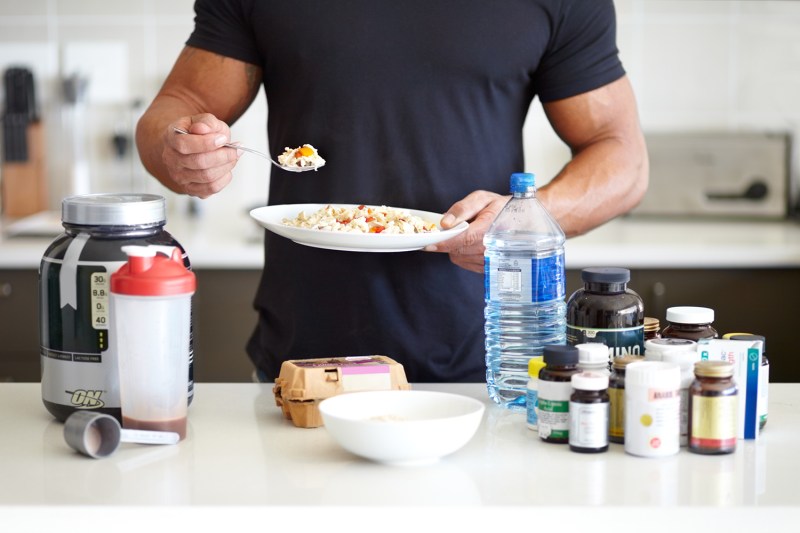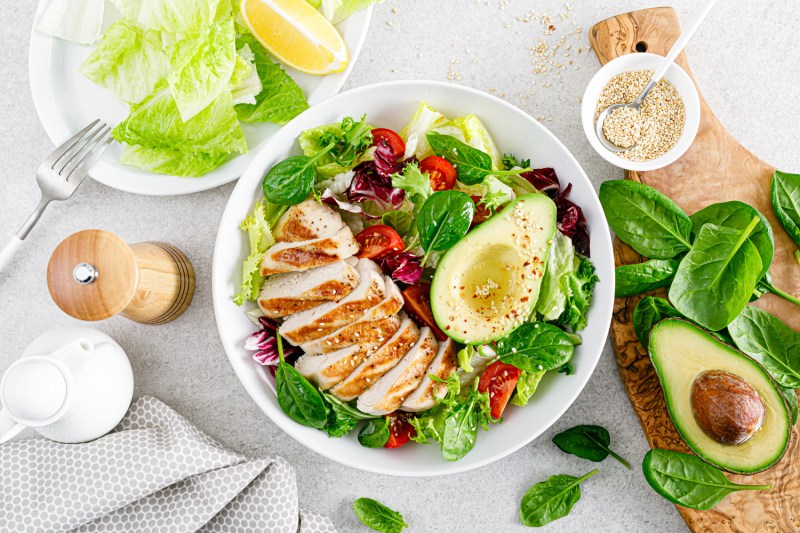Your diet plays a crucial role in building muscle. Finding the best bulking meals can help you improve your muscle growth and overall strength. Whether you’re a seasoned bodybuilder or just starting your fitness journey, incorporating high-calorie, nutrient-dense foods into your diet is essential.
In this guide, we’ll explore the best bulking meals that will help you achieve your muscle-building goals. These meals are designed to provide the necessary calories and nutrients to fuel your workouts and promote muscle recovery. Let’s get cooking!
What is bulking?

Bulking is a phase in bodybuilding and fitness where the primary goal is to gain muscle mass. This process involves consuming more calories than your body needs to maintain its current weight, combined with a rigorous strength training regimen.
The excess calories provide the energy required for intense workouts and the nutrients necessary for muscle repair and growth. Ideally, you should eat a balanced mix of protein, carbohydrates, and fats to supply your muscles with the nutrients they need.
How long should you be in a bulk for?

Although it varies, a bulking phase generally lasts eight to 16 weeks. Some people may choose to bulk for shorter periods to avoid excessive fat gain, while others may extend their bulking phase to achieve more significant muscle growth. Listening to your body and making adjustments based on your progress are key to a successful bulk.
What are the best high-calorie foods for bulking?

High-calorie foods are essential for a successful bulk. Some of the best options include the following:
- Lean meats like chicken, beef, and turkey
- Fatty fish such as salmon and mackerel
- Whole grains like oats, quinoa, and brown rice
- Nuts and seeds, including almonds, walnuts, and chia seeds
- Dairy products like whole milk, cheese, and yogurt
Foods like these provide a good balance of protein, carbohydrates, and fats to support muscle growth.
Do macronutrients matter with bulking meals?

Yes, macronutrients are crucial when it comes to bulking meals. Ensuring a proper balance of protein, carbohydrates, and fats helps optimize muscle growth and recovery. Protein is essential for muscle repair, carbohydrates provide energy for workouts, and fats support overall health and hormone production.
How often should you eat bulking meals?

Eating frequently is important during a bulking phase. You can eat as much as five to six meals and snacks per day, spaced out every two to three hours. This helps maintain a steady supply of nutrients to your muscles and keeps your energy levels high throughout the day. This frequency of intake isn’t required, but if you’re eating less often, make sure to consume larger portions.
7 meals and snacks for a successful bulk

Chicken and rice bowl
This classic bulking meal combines lean protein and complex carbohydrates, making it perfect for muscle recovery and sustained energy. It’s a balanced, nutrient-dense meal that’s delicious and easy to prepare.
Ingredients:
- 1 cup cooked brown rice
- 200g grilled chicken breast
- 1 cup steamed broccoli
- 1 tbsp olive oil
Instructions:
- Cook the brown rice according to package instructions.
- Grill the chicken breast until fully cooked.
- Steam the broccoli until tender.
- Combine rice, chicken, and broccoli in a bowl.
- Drizzle with olive oil and serve.
Beef and sweet potato
A hearty and satisfying meal, this dish is rich in protein and iron, essential for muscle growth and oxygen transport in the blood. The spinach and sweet potato sides offer complex carbohydrates, fiber, vitamins, and minerals, making this meal both nutritious and flavorful.
Ingredients:
- 200g lean ground beef
- 1 large sweet potato
- 1 cup spinach
- 1 tbsp coconut oil
Instructions:
- Cook the ground beef in a skillet until browned.
- Bake or microwave the sweet potato until soft.
- Sauté the spinach in coconut oil until wilted.
- Combine beef, sweet potato, and spinach on a plate and serve.
Salmon and quinoa
This nutrient-dense meal combines two complete proteins — salmon and quinoa — to provide essential amino acids. Mixed vegetables add color, crunch, and a variety of vitamins and minerals. This dish is not only great for muscle building but also supports heart health and overall well-being.
Ingredients:
- 200g salmon fillet
- 1 cup cooked quinoa
- 1 cup mixed vegetables (e.g., bell peppers, zucchini)
- 1 tbsp olive oil
Instructions:
- Bake the salmon fillet at 375°F for 20 minutes.
- Cook the quinoa according to package instructions.
- Sauté the mixed vegetables in olive oil until tender.
- Combine salmon, quinoa, and vegetables on a plate and serve.
Greek yogurt with berries and nuts
Greek yogurt is packed with protein — averaging 20 grams in one cup! The berries and nuts provide antioxidants and healthy fats, and the optional honey has minimal nutritional benefit, but it makes this an absolutely delicious snack that can be enjoyed anytime, anywhere!
Ingredients:
- 1 cup Greek yogurt
- 1/2 cup mixed berries
- 1/4 cup mixed nuts
- Honey (optional)
Instructions:
- Place the Greek yogurt in a bowl.
- Top with mixed berries and nuts. Drizzle with honey if desired.
- Mix well and enjoy.
Turkey and avocado wrap
This convenient meal is perfect for on-the-go nutrition, and it is full of protein, healthy fats, and fiber. Considering it is both filling and nutritious, this wrap serves as an excellent choice for a quick lunch or dinner.
Ingredients:
- 1 whole wheat tortilla
- 100g sliced turkey breast
- 1/2 avocado, sliced
- 1 cup lettuce
- 1 tbsp hummus
Instructions:
- Lay the tortilla flat and spread hummus over it.
- Add the sliced turkey, avocado, and lettuce.
- Roll up the tortilla and slice it in half to serve.
Cottage cheese and pineapple
A refreshing and light snack, cottage cheese is high in protein and low in fat, making it ideal for muscle building. Pineapple adds vitamin C, which supports immune function. This simple yet tasty combination is perfect for a post-workout snack or a light meal.
Ingredients:
- 1 cup cottage cheese
- 1/2 cup pineapple chunks
Instructions:
- Place cottage cheese in a bowl.
- Top with pineapple chunks.
- Mix well and enjoy.
Protein smoothie
This quick and nutritious drink is perfect for boosting your protein intake on the go. It’s an excellent option for a pre- or post-workout drink, providing the necessary nutrients to fuel your muscles and aid recovery.
Ingredients:
- 1 scoop protein powder
- 1 banana
- 1 cup almond milk
- 1 tbsp peanut butter
Instructions:
- Combine all ingredients in a blender.
- Blend until smooth.
- Pour into a glass and enjoy.
Frequently asked questions

Are there different clean and dirty bulking foods?
Yes, clean bulking foods are nutrient-dense and minimally processed, such as lean meats, whole grains, and vegetables. Dirty bulking foods are high in calories but often processed and less nutritious, like fast food and sugary snacks, which can lead to gaining fat alongside muscle.
What are the cheapest effective foods for a bulk?
Some of the cheapest effective foods for bulking include rice, oats, eggs, chicken, and beans. These foods are affordable, higher in calories, and provide essential nutrients for muscle growth.
How many calories should I eat to bulk?
The number of calories you need to bulk depends on your current weight, metabolism, and activity level. A general guideline is to consume 250 to 500 calories above your maintenance level to promote muscle gain without excessive fat accumulation.




